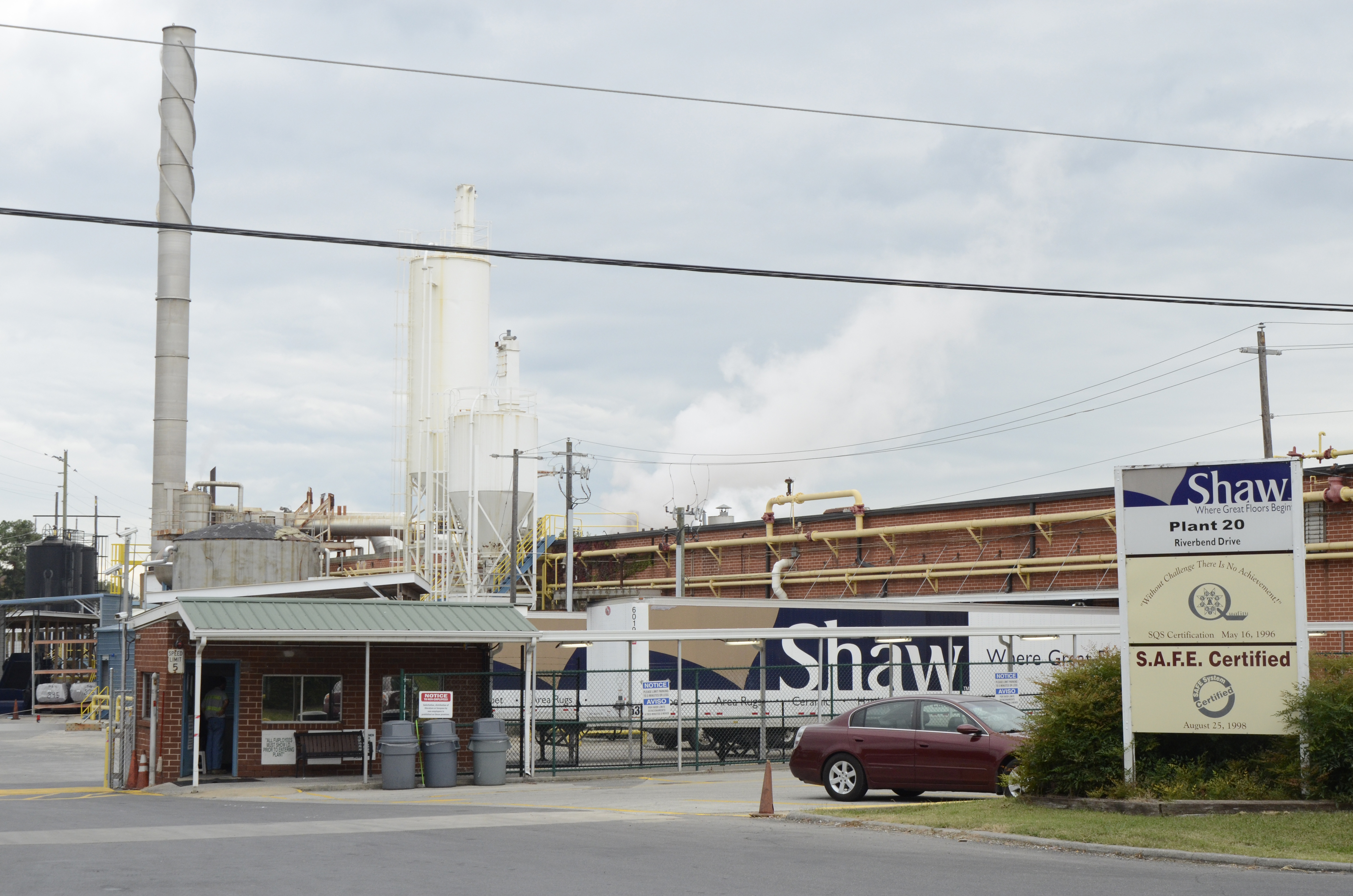By the numbers2011:• Revenue - $4.24 billion• Earnings - $120 million• Investments - $130 million2010:• Revenue - $4.05 billion• Earnings - $160 million• Investments - $180 million2009:• Revenue - $4.01 billion• Earnings - $140 million• Investments - $190 million2008:• Revenue - $5.05 billion• Earnings - $210 million• Investments - $170 million2007:• Revenue - $5.37 billion• Earnings - $440 million• Investments - $140 million2006:• Revenue - $5.83• Earnings - $600 million• Investments - $190 millionSource: Shaw Industries
The recession is fading for Shaw Industries, which hired a net 784 workers in 2011 as demand for its flooring products stabilized, and another 1,300 in 2012.
Vance Bell, head of Dalton, Ga.-based Shaw Industries, said the world's largest flooring manufacturer has turned the corner and is making new investments.
"We've invested $1 billion in a very challenging economic environment to re-tool and re-position our assets, technology, systems and logistics," Bell wrote in an email.
The initial 2007 drop in demand for residential carpet -- Shaw's biggest market -- sent the flooring manufacturer into a financial nose dive along with its competitors.
Shaw, which is owned by Warren Buffett's Berkshire Hathaway, shed huge swaths of its workforce, slimming down from 32,000 workers to 24,000 as it padlocked the doors of a handful of its oldest plants around the country.
But a spate of recent hiring and $1 billion in investments over the last five years have put a smile back on Bell's face.
While demand for residential carpet has fallen, the market for carpet in hotels and apartment buildings has remained strong, in line with housing trends, carpet officials say.
Shaw followed the trend, spending money to ensure that it can keep up with demand for multifamily and commercial carpet, while shuttering old, outdated plants.
"These investments should support additional profit growth going forward, and we will continue to make significant investments and acquisitions," Bell said.
The company also has invested heavily in carpet recycling, setting up collection points around the U.S., and running special plants that recycle carpet back into nylon and other components.
"Shaw has recycled more than half a billion pounds of post-consumer carpet since 2006, including turning an average of 85 percent of it back into new carpet," Bell said.
The surge in new products and new investments has allowed Shaw to bring back some of the workers laid off during the recession, the company claims.
Of the 1,300 employees hired in 2012, 180 were previously laid-off workers, the company said.
Shaw also is expanding overseas, hoping to further diversify its revenue streams beyond U.S. homeowners.
Shaw hopes to begin operating its Nantong, China, by next summer to serve the fast-growing Asia market.
Unlike U.S. companies using cheap labor in China to make products for the U.S., the new facility will serve Asia's markets using carpet tile and yarn produced in Georgia and other U.S. states.
Shaw has also acquired or invested in three hardwood flooring companies. The company also bought into the sports turf businesses. Bell said.
Most of its near-term growth is in the commercial sector, but Bell said, "housing starts and home sales are increasing and we are positioned and ready for the future."
Reporter Ellis Smith contributed to this report.
